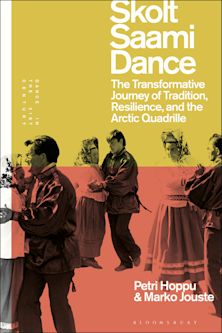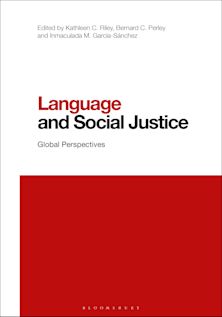- Home
- ACADEMIC
- Anthropology
- Cultural Anthropology
- Selves in Time and Place
Selves in Time and Place
Identities, Experience, and History in Nepal
Debra Skinner (Anthology Editor) , Alfred Pach III (Anthology Editor) , Dorothy Holland (Anthology Editor) , Mary Des Chene (Contributor) , Elizabeth Enslin (Contributor) , Premalata Ghimire (Contributor) , Todd Lewis (Contributor) , Robert I. Levy (Contributor) , Mark Liechty (Contributor) , Kathryn S. March (Contributor) , Ernestine McHugh (Contributor) , Stan Mumford (Contributor) , Sherry B. Ortner (Contributor) , Alfred Pach III (Contributor) , Steven M. Parish (Contributor)
Selves in Time and Place
Identities, Experience, and History in Nepal
Debra Skinner (Anthology Editor) , Alfred Pach III (Anthology Editor) , Dorothy Holland (Anthology Editor) , Mary Des Chene (Contributor) , Elizabeth Enslin (Contributor) , Premalata Ghimire (Contributor) , Todd Lewis (Contributor) , Robert I. Levy (Contributor) , Mark Liechty (Contributor) , Kathryn S. March (Contributor) , Ernestine McHugh (Contributor) , Stan Mumford (Contributor) , Sherry B. Ortner (Contributor) , Alfred Pach III (Contributor) , Steven M. Parish (Contributor)
This product is usually dispatched within 1 week
- Delivery and returns info
-
Free CA delivery on orders $40 or over
You must sign in to add this item to your wishlist. Please sign in or create an account
Description
Recently anthropology has turned to accounts of persons-in-history/history-in-persons, focusing on how individuals and groups as agents both fashion and are fashioned by social, political, and cultural discourses and practices. In this approach, power, agency, and history are made explicit as individuals and groups work to constitute themselves in relation to others and within and against sociopolitical and historical contexts.
Contributors to this volume extend this emphasis, drawing upon their ethnographic research in Nepal to examine closely how selves, identities, and experience are produced in dialogical relationships through time in a multi-ethic nation-state and within a discourse of nationalism. The diversity of peoples, recent political transformations, and nation-building efforts make Nepal an especially rich locale to examine people's struggles to define and position themselves. But the authors move beyond geographical boundaries to more theoretical terrain to problematicize the ways in which people recreate or contest certain identities and positions. Various authors explore how people-positioned by gender, ethnicity, and locale-use cultural genres to produce aspects of identities and experiences; they examine how subjectivities, agencies and cultural worlds co-develop and are shaped through engagement with cultural forms; and they portray the appropriation of multiple voices for self and group formation. As such, this collection offers a richly textured and complex accounting of the mutual constitution of selves and society.
Table of Contents
Chapter 2 Preface
Part 3 Introduction
Chapter 4 Selves in Time and Place: An Introduction
Part 5 Part I. Personal Trajectories
Chapter 6 Fate, Domestic Authority, and Women's Wills
Chapter 7 Narrative Subversions or Hierarchy
Chapter 8 Contested Selves, Contested Femininities: Selves and Society in Process
Chapter 9 Narrative Constructions of Madness in a Hindu Village in Nepal
Part 10 Part II. Cultural Productions of Identity
Chapter 11 Consumer Culture and Identities in Kathmandu: "Playing with Your Brain"
Chapter 12 Situating Persons: Honor and Identity in Nepal
Chapter 13 Tibetan Identity Layers in the Nepal Himalayas
Chapter 14 Crossing Boundaries: Ethnicity and Marriage in a Hod Village
Chapter 15 Engendered Bodies, Embodied Genders
Part 16 Part III. Politicized Selves
Chapter 17 The Case of the Disappearing Shamans, or No Individualism, No Relationalism
Chapter 18 Imagined Sisters: The Ambiguities of Women's Poetics and Collective Actions
Chapter 19 Growing Up Newar Buddhist: Chittadhar Hridaya's Jhi Maca and Its Context
Part 20 Afterword
Chapter 21 Selves in Motion
Chapter 22 Index
Product details
| Published | Jul 02 1998 |
|---|---|
| Format | Hardback |
| Edition | 1st |
| Extent | 352 |
| ISBN | 9780847685981 |
| Imprint | Rowman & Littlefield |
| Dimensions | 234 x 156 mm |
| Publisher | Bloomsbury Publishing |
About the contributors
Reviews
-
This book deals, importantly and expertly, with what most other anthropological studies leave out: the individual person. The contributors take large strides towards filling this yawning anthropological gap, including in their analyses a wide spectrum ofethnographic types, from Tarai-dwellers to those living in the highest mountainssss
James F. Fisher, Carleton College
-
Collectively, these essays remind us of the central importance of individual persons whenever we attempt to understand culture and the ways that it shapes, and is shaped by, personal identities. By delivering this reminder so sharply and concretely, the book is clearly a success and deserves to be read.
Gregory G. Maskarinec, University of Hawaii, Journal of Anthropological Research
-
This represents the most wide-ranging sample of Indian military opinion yet undertaken. Kundu's study is an important addition to the understanding of the Indian military provided by earlier studies. It demonstrates the value of blending documentary with oral sources and of adopting an inter-disciplinary approach to South Asian Studies.
Ian Talbot, Bulletin of the School of Oriental and African Studies
-
This is extremely readable volume; each article contains personal reflection, anecdote, and ethnographic detail.
Naomi H. Bishop, California State University, Northridge, Religious Studies Review
-
The book is an important one, not only because of its subject matter, but also because of the way such examinations proceed; few anthropologists have looked at individual lives in Himalayan societies in such ethnografically rich, theoretically sophisticated terms. One of the volume's strengths is the ethnographic diversity and comprehensiveness staked out by the contributors. Another is the matrix of concepts, questions, insights, assessments and reassessments that results from a careful reading of the chapters.
Transcultural Psychiatry
-
This book deals, importantly and expertly, with what most other anthropological studies leave out: the individual person. The contributors take large strides towards filling this yawning anthropological gap, including in their analyses a wide spectrum of ethnographic types, from Tarai-dwellers to those living in the highest mountains
James F. Fisher, Carleton College


































